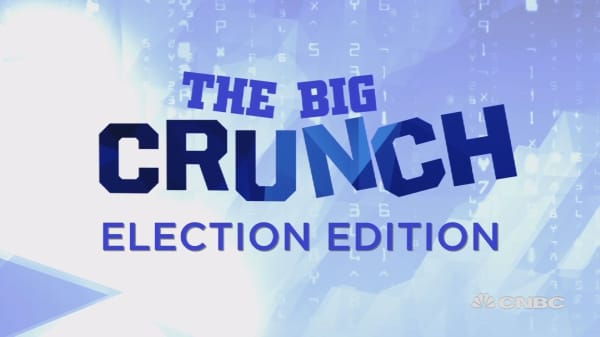A big theme in this election cycle has been the so-called gig economy. It's fueled by the likes of fresh hotel competitor Airbnb along with ride sharing apps like Lyft and Uber.
Some presidential candidates applaud the companies' innovative ways around stringent regulation, while others question the ways freelancers are changing the nature of the workforce and the economy. Love it or leave it, Uber is a fact of life in most American cities now, and even presidential campaigns are getting in on it.
Every presidential campaign has spent money on the on-demand taxi service, according to a Big Crunch analysis of campaign expenditure data from the Federal Elections Commission.
By hiring contractors who operate outside the traditional of employment, companies like Uber can avoid paying certain taxes to the government. They can also avoid offering worker protections that we normally associate with full-time employment.
But working for a company like this lets people use their time more efficiently and make rational decisions for themselves. The companies also provide a capitalistic incentive to perform basic tasks other consumers are willing to outsource.
Uber, Lyft and Airbnb have faced political controversy, regulatory pushback and a wealth of rich investors looking to make huge profits.
It turns out that all of the presidential candidates have spent money on on-demand services, and all have used Uber.









